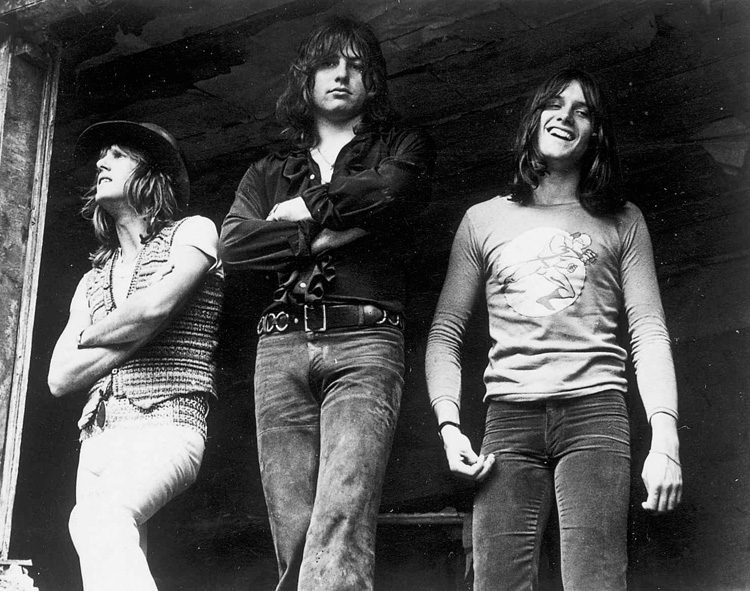
By 1973, Emerson, Lake & Palmer had become established superstars. The three respected musicians had earned their first spurs at a very young age with The Nice, King Crimson and Atomic Rooster. As a band their star had risen three years earlier at the Isle-Of-Wight-Festival. From then on, ELPs, which were preceded by their reputation as the first supergroup, were really hyped, even if they were extremely polarized. While they celebrated some as innovative pioneers, reconciling rock with jazz and classical music, others accused them of megalomania, blown pathos and exuberant bombardment. The debut album with the truly unrepresentative hit "Lucky Man", the records "Trilogy" and "Tarkus" as well as the daring and famous Mussorgski adaptation "Pictures At An Exhibition" were bulky, but all successful. They had increased the fame of the group, which in their own words was more a community of interests than a band. Opposite eclipsed Greg Lake recently admitted: "We were never real friends".
Financial independence for further experiments
Their early fame brought ELP financial independence, with which they bought their artistic freedom. In their early days, they had sworn to create something completely new, unheard of, and not to be dissuaded by anyone. So ELP left their label Island in 1973 and founded their own label Manticore. Over the years, Keith Emerson's preference for complex song structures, jazz and classical influences had become more and more dominant and he had set the rough line. Lake, who thought "easier", went this way, even if he regretted this sometimes. So he is still convinced today that his acoustic ballad "Still... You Turn Me On" would have become a world hit like "Lucky Man" had Emerson and Palmer not vetoed a decoupling.
Lake was satisfied, and so the development on the new LP found its logical continuation. Unlike "Trilogy", which had been recorded with many overdubs, this time the material should be liveable. To guarantee this, the band bought a cinema in Fulham without further ado, where the sessions took place from then on. In May, the trio had already spent a week in the studio in Paris, now the finishing touches were done. Palmer remembers: "We put more time and energy into this album than into any other record. Nothing went fast. It was a really very tedious, complicated process - a bit like building a house brick by brick, and when you finally finish a wall, it collapses again." Looking back, he sees ELP 1973 at the peak of their creative power: "We have never topped this band phase again. I think if you had to pick out an album that should be called our 'masterpiece' it would be 'Brain Salad Surgery'. For me, it was our Sgt. Pepper moment."
Keith Emerson, who died in March, also saw it this way: "We noticed that we needed time to realize what we really wanted. And I think it's been worth it because a lot of Brain Salad Surgery are among the best we've ever done." This assessment is all the more astonishing as hardly anyone has ever spoken of a homogeneous album in this work - not even the musicians themselves. Because it unites seemingly incompatible, namely five tracks that could hardly be more different.


